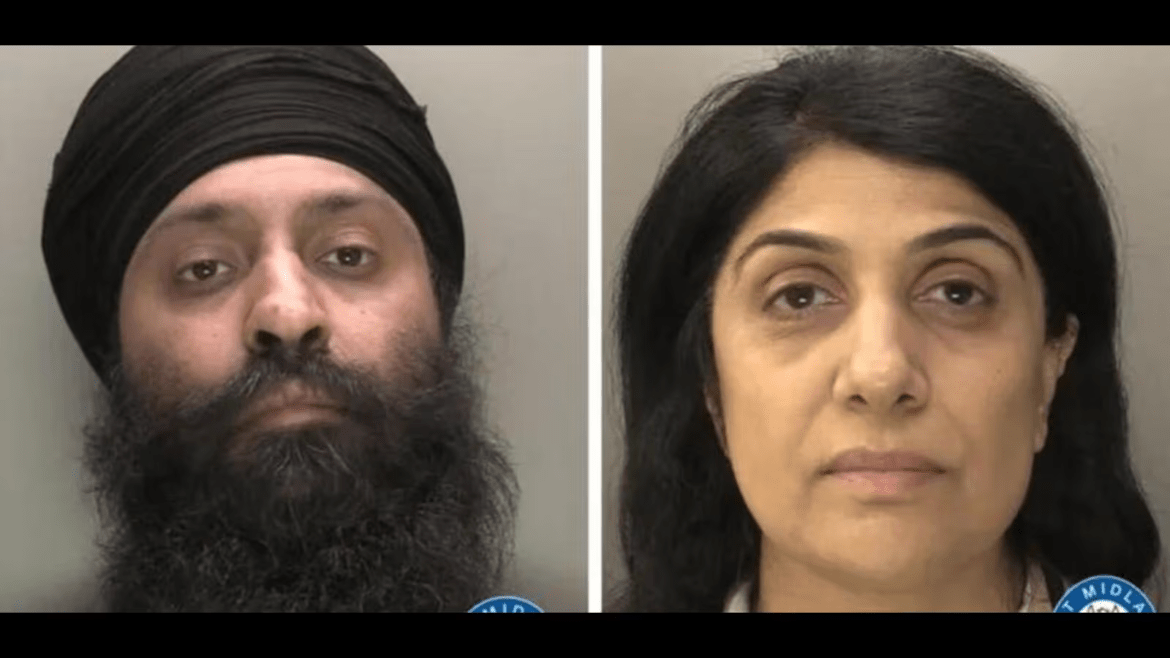AI Generated Summary
- Central to the investigation was the organisation’s failed bid in 2016 to secure registered charity status with the Charity Commission, a process halted when SYUK was unable to provide the additional information requested by the regulator.
- As the community grapples with the fallout from the case, local authorities remain steadfast in their commitment to upholding the integrity of charitable donations and ensuring that public trust in such causes is not undermined by fraudulent activities.
- Kaur, who had prior experience working in banking, was found guilty of money laundering alongside six counts of theft, totaling £50,000, and an offence under Section 60 of the Charities Act 2011—pertaining to providing false or misleading information to the Charity Commission.
A high-profile fraud case involving a Birmingham-based brother and sister has come to a close with both defendants receiving sentences after being found guilty of misusing funds raised under the guise of charity. The pair, who once led the Sikh Youth UK (SYUK) group, were convicted of multiple offences that included money laundering, theft, and contraventions of the UK’s Charities Act.
Rajbinder Kaur, 55, and her brother Kaldip Singh Lehal, 43, stood trial at Birmingham Crown Court where evidence revealed a systematic effort to misappropriate donations meant for benevolent causes. Kaur, who had prior experience working in banking, was found guilty of money laundering alongside six counts of theft, totaling £50,000, and an offence under Section 60 of the Charities Act 2011—pertaining to providing false or misleading information to the Charity Commission. Her brother, Lehal, received a conviction for the same charitable offence.
In the sentencing remarks delivered on Thursday, the court imposed a custodial sentence of two years and eight months on Kaur. Lehal was given a sentence of four months, suspended for 18 months, in addition to 80 hours of community service.
Superintendent Annie Miller of West Midlands Police commented on the case, saying, “Kaur attempted to disguise her financial acumen by feigning naivety, despite her background in banking. The Sikh Youth UK platform was exploited to fund her lavish lifestyle and settle personal debts, effectively misappropriating funds donated by the local community for noble causes.”
The investigation, which began in earnest in October 2018 after West Midlands Police raised concerns about the handling of charitable donations by SYUK, culminated in the arrests of the duo in July 2019. Subsequent charges were laid in September of that year, marking the beginning of what prosecutors described as an intricate inquiry into fraud. Central to the investigation was the organisation’s failed bid in 2016 to secure registered charity status with the Charity Commission, a process halted when SYUK was unable to provide the additional information requested by the regulator.
Evidence during the trial showed that SYUK had orchestrated numerous fundraising events—including a sponsored winter sleep-out and a football tournament in 2018—to collect donations that were later diverted. Kaur is alleged to have deliberately obscured the money trail, utilizing over 50 personal bank accounts to transfer funds from the organisation’s accounts. These funds were subsequently used to pay off personal loans and debts and even to make transfers to family members.
Superintendent Miller underscored the extensive efforts made by law enforcement and regulatory bodies throughout the prolonged investigation, noting close cooperation with the Charity Commission in tracking and analysing the financial irregularities.
The verdict, delivered in September 2024 following a meticulous trial, marks a significant moment in the local fight against the misuse of charitable funds. However, the case has also sparked controversy among supporters of the organisation. Activists aligned with Sikh Youth UK were seen gathering outside the court, denouncing the legal proceedings as a “witch-hunt” aimed at discrediting their group.
As the community grapples with the fallout from the case, local authorities remain steadfast in their commitment to upholding the integrity of charitable donations and ensuring that public trust in such causes is not undermined by fraudulent activities.




